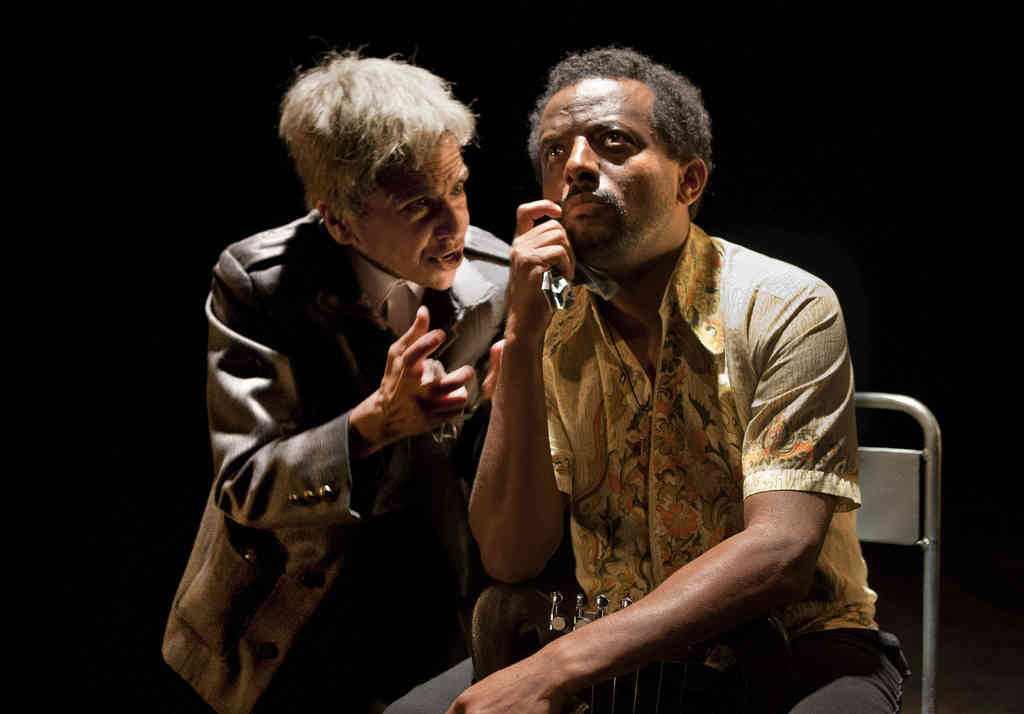She’s playing all the king’s men.
An award-winning actress will portray nearly a dozen different men in “The Emperor,” a play opening at the Polonsky Shakespeare Center in Fort Greene on Sept. 16. Kathryn Hunter said that she learned to juggle between the 11 male servants she plays by studying the book the play is based on, and extrapolating from there.
“These characters, you have to imagine their lives fully — you have to discover their backstory and what their attitude was about the emperor, and then when it comes to the moment, you just click in very quickly,” said Hunter, who is living in Fort Greene during her month-long sojourn from London. “I’m doing this production and it feels like I have to go and look after the guys every morning — I feel like a mom with 11 kids.”
The show traces the downfall of the last Ethiopian emperor, Haile Selassie, who was overthrown in 1974. Its writer, Polish journalist Ryszard Kapuscinsk, traveled to Ethiopia the same year and interviewed the former emperor’s 33 servants for his book, which he later adapted into a play. In this production, Hunter plays one third of the servants, and in one segment shifts rapidly between them for a series of one-minute interviews. Since she cannot change her physical appearance for each character, she instead focuses on her mannerisms.
“There’s no time for big changes of costume — just adding little elements, like glasses or a hat,” she said. “It’s mainly in the body or the voice or the attitude that the servants are differentiated.”
Only one other person shares the stage with Hunter: Ethiopian musician Temesgen Zeleke, who plays the krar — a bowl-shaped lyre — and a pedal drum on stage. Zeleke said that he enjoys working with Hunter — even though the pair only interact on stage in two scenes, when he plays the son of one of the servants.
“I’m really happy to be part of the play,” he said. “[Kathryn] is a really lovely person.”
Zeleke’s involvement helped to bring Ethiopian culture to the stage, said Hunter.
“Once Temesgen came on board we really felt he was breathing Ethiopia into the theater,” she said. “It’s wonderful to be told a story about another culture.”
But the play also speaks to contemporary United States culture, said Hunter, because of its commentary on politics, power, and corruption.
“[Kapuscinski] says that he wants to interview these people in order to understand the old arc of governing. Whether you apply it to the U.S. or Europe or Korea, I think the whole world now is questioning itself about what it means, the art of governing — what is good leadership?” she said. “We are in a crisis of leadership, and that’s where I think the play is fantastically relevant and actual and will engage people in a hugely exciting way.”
“The Emperor” at the Polonsky Shakespeare Center (262 Ashland Pl. between Fulton Street and Lafayette Avenue, www.tfana.org). Sept. 16 at 7:30 pm, then Sept. 18–30; Tue–Fri at 7:30 pm; Sat, Sun at 2 pm. $90–$125 ($20 students).
























